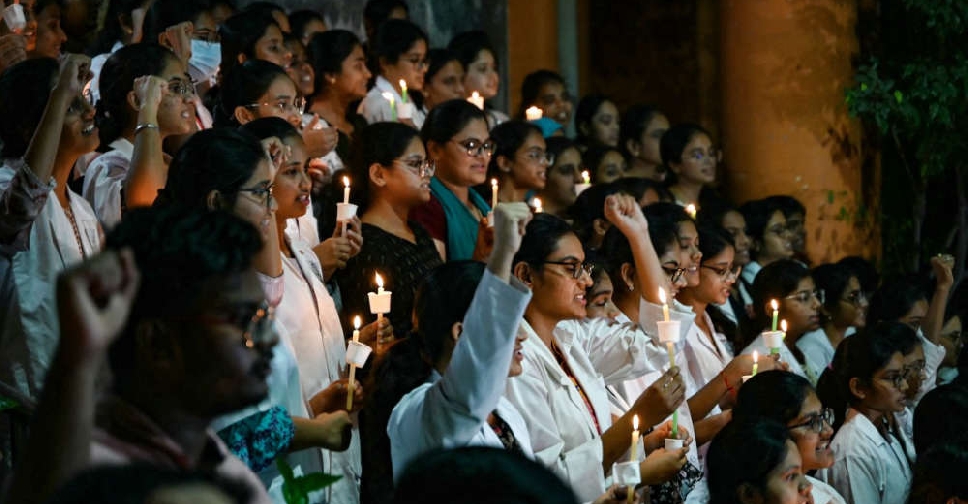
Hospital services were disrupted in several Indian cities on Tuesday, after the nationwide spread of a doctors' protest against the alleged rape and murder of a 31-year-old doctor in the eastern city of Kolkata.
Television images showed thousands of doctors marching on Monday to protest the incident at a government-run hospital, calling for justice for the victim and better security measures, paralysing health services in West Bengal state.
The protest rippled nationwide on Tuesday, joined by more than 8,000 government doctors in the western Maharashtra state, home to the financial capital of Mumbai, halting work in all hospital departments except emergency services.
In the capital, New Delhi, junior doctors wearing white coats held posters that read, "Doctors are not punching bags," as they sat in protest outside a large government hospital to demand an investigation.
Thousands of patients were left stranded by similar protests in cities such as Lucknow, capital of the most populous state of Uttar Pradesh, and in the western tourist resort state of Goa that crimped some hospital services.
"Pedestrian working conditions, inhuman workloads and violence in the workplace are the reality," the Indian Medical Association, the biggest grouping of doctors in the country, told Health Minister JP Nadda in a letter.
Doctors maintain their workplace environment is unsafe, even after the weekend arrest of a police volunteer in Kolkata for the doctor's murder, and the resignation of the principal of the medical college where it happened.
City police chief Vineet Kumar Goyal told reporters a case had been registered against the suspect under provisions of the law relating to rape and murder.
West Bengal Chief Minister Mamata Banerjee told reporters she had given state police a deadline of Sunday to complete their investigation, or she would hand it to federal agencies.
Emergency services stayed suspended on Tuesday in almost all the government-run medical college hospitals in Kolkata, state official NS Nigam told Reuters, adding that the government was assessing the impact on health services.
Doctors in India's crowded and often squalid government hospitals, who find themselves overworked and underpaid, sometimes also end up bearing the brunt of violence by those angered at medical services they see as falling short.


 Israeli attacks on Gaza killed 60 people in 24 hours
Israeli attacks on Gaza killed 60 people in 24 hours
 Trump fires National Security Agency director
Trump fires National Security Agency director
 Israel steps up Syria strikes, says Turkey aims for 'protectorate'
Israel steps up Syria strikes, says Turkey aims for 'protectorate'
 US sending Israel 20,000 assault rifles that Biden delayed
US sending Israel 20,000 assault rifles that Biden delayed



